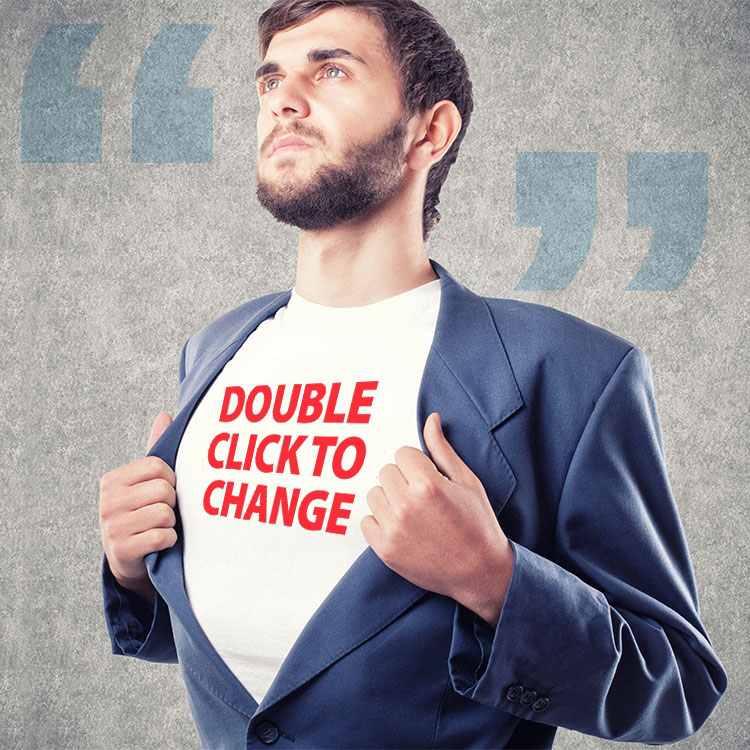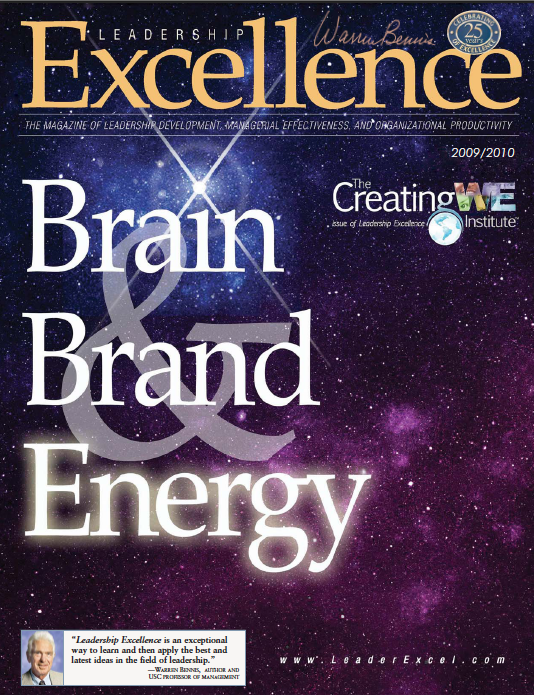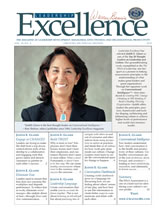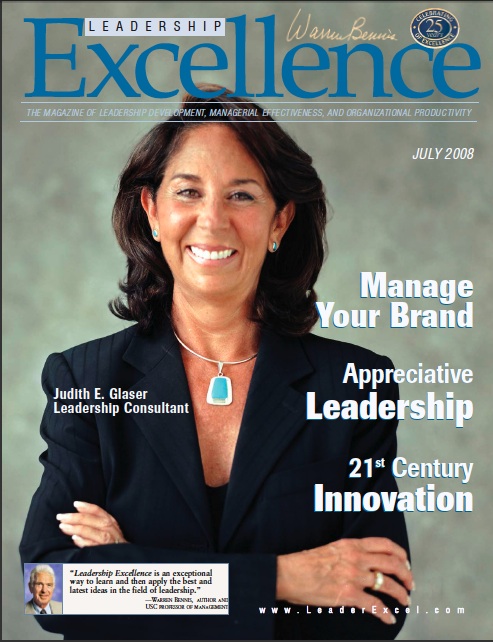By Judith E. Glaser | Personal Excellence
Published March, 2015
Suppose that you have argued with a colleague and now avoid talking to him. Your relationship is damaged, and you wonder how to repair and restore it—how to start over, make up, rebuild trust, and work through issues rather than move way from others.
Most of us at work experience moments of conflict daily as we fall prey to power, politics, and personalities. When we disagree with someone on an issue, we get triggered, and then go for a win. If the conflict involves something important to us, we tend to take a position and fight for our beliefs.
Relationship Repair Ritual
My relationship repair kit includes conversational rituals that will help you reframe, refocus, and redirect conversations and transform anger into alignment. One such repair ritual is to Double-Click to reshape the future. This is a sharing and discovering approach to understanding the perspectives of others so they feel heard, not threatened. I call it Double-Clicking because the process mimics opening folders on your computer to drill down into details and unlock deep connections. As you strengthen your relationships by listening and caring, you quell fears, trigger the mirror neuron system, create empathy, and open your mind to think about conflicts in new ways. As you trigger oxytocin—the trust and bonding hormone—a conflict can open new possibilities.
To do this exercise, get with at least three other people, draw a circle in the center of a piece of paper, and write Success. Then draw 12 spokes around the circle and write one word that represents success to you. Delve into your individual mindscapes to share and compare word meanings and perceptions with each other. You will discover that people have different ideas about success. One may view team success as a lack of conflict, another as the ability to share different ideas and challenge each other, and another might view it using only a financial measure.
We all hold different views of reality, and when we look inside to see the meanings we make of core concepts, we discover associations we didn’t know we had. Double-Clicking brings to light areas where people are aligned and misaligned.
Movie Makers
We often assume we are aligned around success when we are not. Our success wheels represent the way we envision and measure success, and how we navigate to create success. If our movies differ in the details, we create cultures of distrust. I’m looking to produce my movie of success while you are looking to produce yours.
Double-Clicking is an antidote to conflict. When you look inside someone else’s meanings of words, you see that conflicts often come from the way we frame or define the words we use. Through this exercise we learn how to practice living in discovery. When we don’t stop to explore and discover, we live with the belief that we disagree, when in fact we may not. When we graphically map success together, we can feel an organic and chemical change-taking place that turns foes into friends and transforms “my ideas” into “our ideas.” This dramatic shift moves us from I to WE—a neurochemical shift at the heart of Conversational Intelligence that enables bonding and collaboration.
We all hold different views of reality, and when we Double-Click, we explore the unique connections at the heart of the matter. We breathe new life and possibilities into relationships—often resulting in transformation.
Power, politics, and personalities are part of being human. We are, by nature, social beings who function better inside a group. We want to be included, appreciated, valued, recognized and loved. By enhancing the quality of the engagement at each level, you will have more meaningful conversations that restore relationships, reduce conflict and move into co-creative interactions that achieved desired outcomes.





